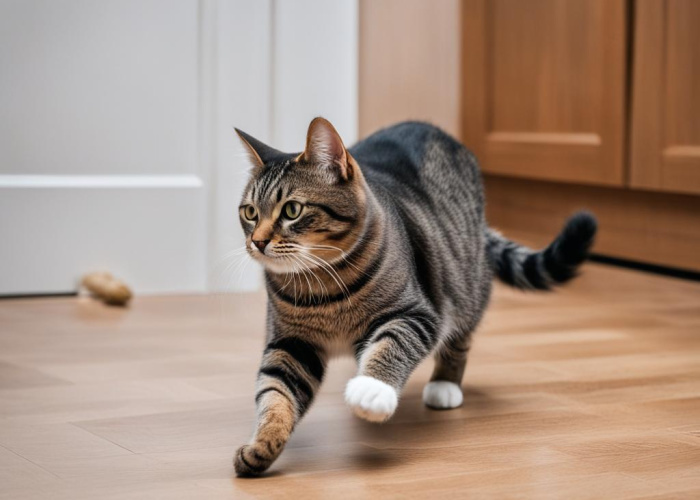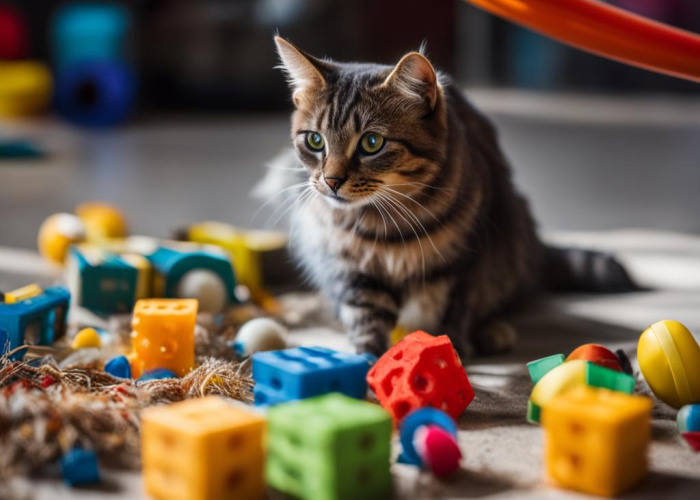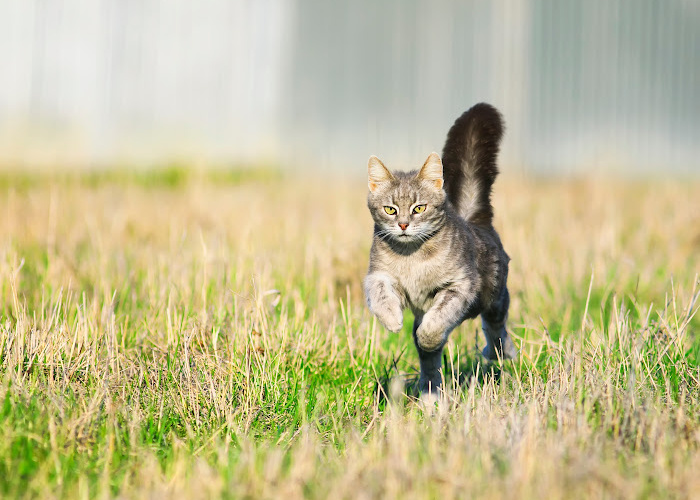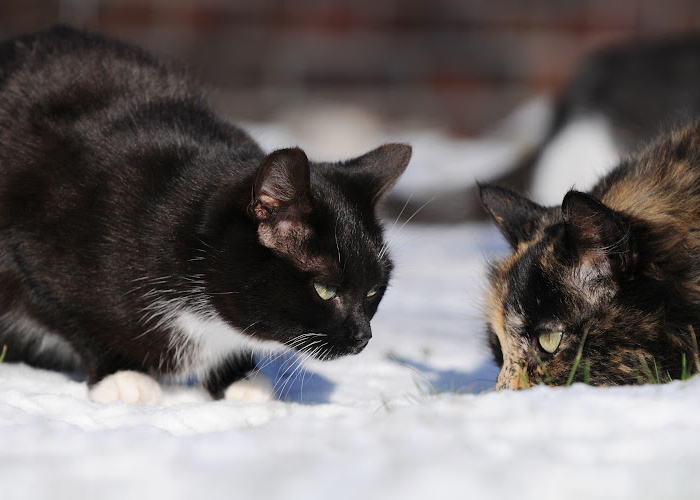It's crucial to know that students with autism and ADHD need special study strategies. Autism…

Can Cats Have ADHD? A Closer Look at Cat Behaviour
Is it possible that our feline companions can be diagnosed with Feline Attention Deficit Hyperactivity Disorder (ADHD) just as humans do? As more research emerges around the realm of cat mental health, understanding feline behavior disorders and feline ADHD has become paramount.
In this article, we will delve into the world of cat behavioural issues, examine the similarities between human and feline ADHD, and discuss whether or not ADHD in felines is a genuine condition.
Cat behaviour problems can be complex and may sometimes present like typical ADHD symptoms found in humans. However, it’s essential to differentiate normal feline antics from potentially problematic behaviour, as it plays a crucial role in supporting our pets’ overall well-being.
By observing and understanding the nuances of feline behavioural issues and cat behaviour disorders, we can help maintain their mental and physical health.
Understanding Feline Behaviour Disorders: Does ADHD Exist in Cats?
When it comes to feline behaviour disorders, one of the questions that often arises is whether cats can exhibit symptoms resembling human ADHD. This inquiry is based on the observation of cat attention problems and the presence of cat excessive energy and cat hyperactivity.
By examining the nuances of feline cognition and feline impulsivity, it is possible to analyse whether such symptoms could be indicative of a larger issue, such as feline ADHD.
While some cats display seemingly restless behaviour, it is vital to consider the potential for misinterpreting high energy and restlessness as pathological, instead of simply acknowledging it as normal feline behaviour. Cats are known for their playful energy, which can sometimes be mistaken for attention issues or hyperactivity.
It is essential to address the question of whether the label “ADHD in cats” is fitting, or if it is merely an attempt to humanise typical cat behaviour. In order to gain a better understanding of cat hyperactivity and cat focus problems, it is necessary to review veterinary insights and behavioural studies on the matter. These sources can provide valuable information on the complexity of feline behaviour and distinguish between normal and potentially problematic conduct.
As research on feline behavioural disorders is further developed, it is crucial to maintain an open mind while exploring the possibility of cats with ADHD-like symptoms. Recognising the existence of feline attention issues and differentiating them from healthy, playful energy is key for ensuring the well-being of our feline companions.

Can Cats Have ADHD? Indicators and Symptoms in Feline Behavior
In this section, we will explore the various indicators and symptoms that may suggest a cat is experiencing feline hyperactivity disorder, closely resembling ADHD in humans. We will examine the characteristics of hyperactive cats, discuss attention problems in felines, and differentiate between genuine behavioural issues and playful energy.
Furthermore, we will investigate the influence of physical and environmental factors on cat behaviour.
Recognising Hyperactivity and Restlessness in Cats
One of the most prominent signs of cat ADHD is hyperactive feline behavior. Hyperactive cats may display excessive energy levels, unnatural restlessness, and increased activity. However, not all active cats have ADHD; sometimes, they might simply be full of energy and curiosity. Identifying the difference between typical feline energy and symptoms of ADHD in cats is crucial in understanding the potential presence of feline hyperactivity disorder.
Attention Problems in Felines: Lack of Focus and Impulsivity
Attention deficit disorder in cats may manifest as a lack of focus and impulsivity in their actions. Cats with ADHD may seem easily distracted, struggle to concentrate on a task, and make decisions without due consideration. Feline attention issues can pose challenges for owners and may have an impact on their overall well-being. It is essential to be aware of these symptoms as they could indicate a potential problem that needs to be addressed.
Behavioural Issues Versus Playful Energy: Deciphering the Difference
It can be challenging to differentiate between genuine behavioural issues and mere playful energy in cats. On the one hand, energetic and playful cats may exhibit actions similar to those seen in cats with ADHD, making it difficult for owners to determine if there is an underlying issue. On the other hand, some genuine ADHD symptoms in cats may be mistaken for typical feline activities. To manage hyperactive cats effectively, it is essential to understand the differences between these behaviours and seek appropriate cat hyperactivity solutions when necessary.
Physical and Environmental Factors Influencing Cat Behaviour
Various physical and environmental factors can influence cat behavior, sometimes mimicking or exacerbating symptoms of ADHD in cats. For instance, poor nutrition or lack of exercise may lead to hyperactive cats, while inadequate environmental enrichment and insufficient stimulation may contribute to feline attention issues.
It is essential for cat owners to be aware of these factors and create a suitable environment for their pets. This awareness can help to manage hyperactive cats more effectively and ensure their overall well-being.

Conclusion
In conclusion, the debate on feline ADHD remains a topic of interest and uncertainty amongst pet owners, behaviourists, and veterinary professionals alike. While discerning clear-cut symptoms and signs of ADHD in cats can be challenging, it is essential to be aware of the subtleties of feline behaviour and recognise their individual needs and preferences.
Summarising the Debate on Feline ADHD
Currently, the existence of Attention Deficit and Hyperactivity Disorder in cats is a complicated matter, with studies and expert opinions showcasing an array of perspectives. Further research is necessary to conclusively determine whether ADHD truly exists in cats, enabling pet owners to fully understand and manage their feline companions’ behaviour.
Practical Tips for Managing Hyperactivity in Cats
For owners concerned about their cat’s seemingly excessive energy, there are various practical steps to take, including cat behaviour modification and cat enrichment activities. Employing calming techniques for hyperactive cats, such as engaging them in interactive play and creating a calming environment, may help to effectively manage this energy and improve their overall well-being.
The Importance of Professional Diagnosis
When dealing with any potential feline behavioural issues such as cat anxiety or ADHD-like symptoms, it is crucial to seek a professional diagnosis from a qualified veterinarian. Their expertise in diagnosing and differentiating between various cat behaviour disorders ensures that the most appropriate treatment options and management plans are provided, tailored to the individual cat’s unique circumstances.

FAQ
Can cats have ADHD?
There is an ongoing debate regarding the existence of ADHD in cats, as the signs and symptoms can be similar to those observed in humans with the condition. However, further research is required to conclusively determine if cats can have ADHD in the same way that humans do.
How can I tell if my cat is hyperactive or just playful?
It can be challenging to distinguish between natural playfulness and genuine hyperactivity. Signs of hyperactivity may include excessive energy, increased activity levels, and agitation even without external stimuli. Seek veterinary advice if you are unsure about your cat’s behaviour.
What are some cat hyperactivity solutions?
There are several strategies to manage hyperactivity in cats, including behaviour modification, cat enrichment activities, and calming techniques. It’s essential to consult a veterinary professional for proper diagnosis and tailored suggestions based on your cat’s individual needs.
How can environmental factors impact my cat’s behaviour?
Environmental factors, such as living conditions, nutrition, and exercise levels, can greatly influence a cat’s behaviour. Ensuring that your cat has proper environmental enrichment, a balanced diet, and enough physical activity can help to provide a stable setting for your cat and minimise behavioural issues.
Should I seek professional diagnosis for my cat’s behavioural issues?
Yes, if you are concerned about your cat’s behaviour, it is essential to consult a veterinary professional to obtain an accurate diagnosis and appropriate treatment plan tailored to your cat’s individual circumstances and needs.



This Post Has 0 Comments